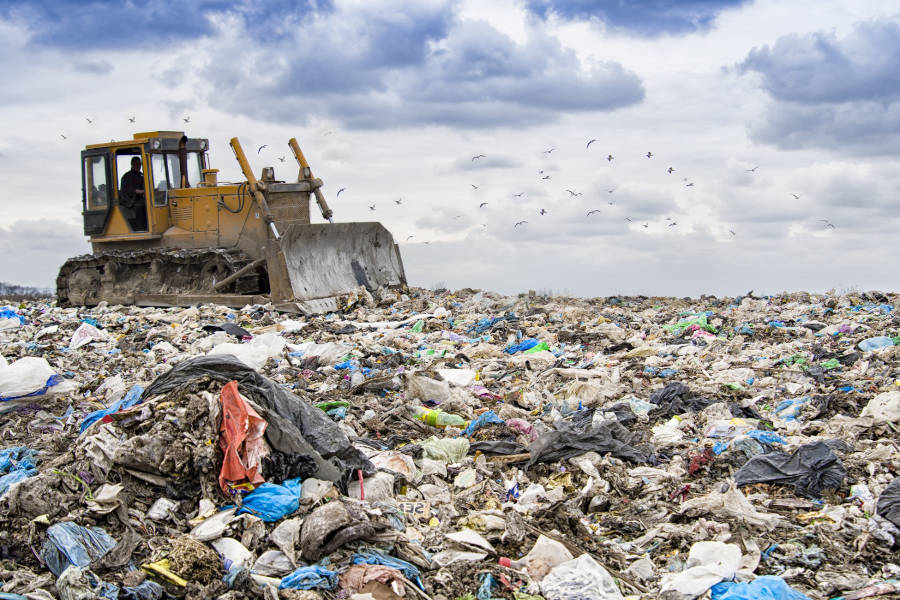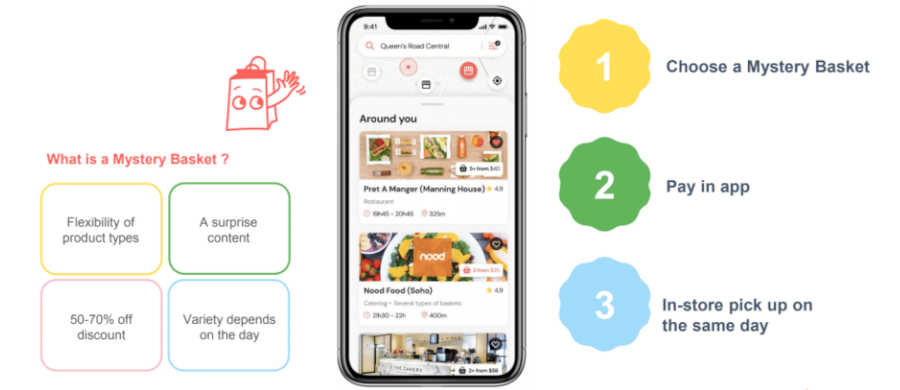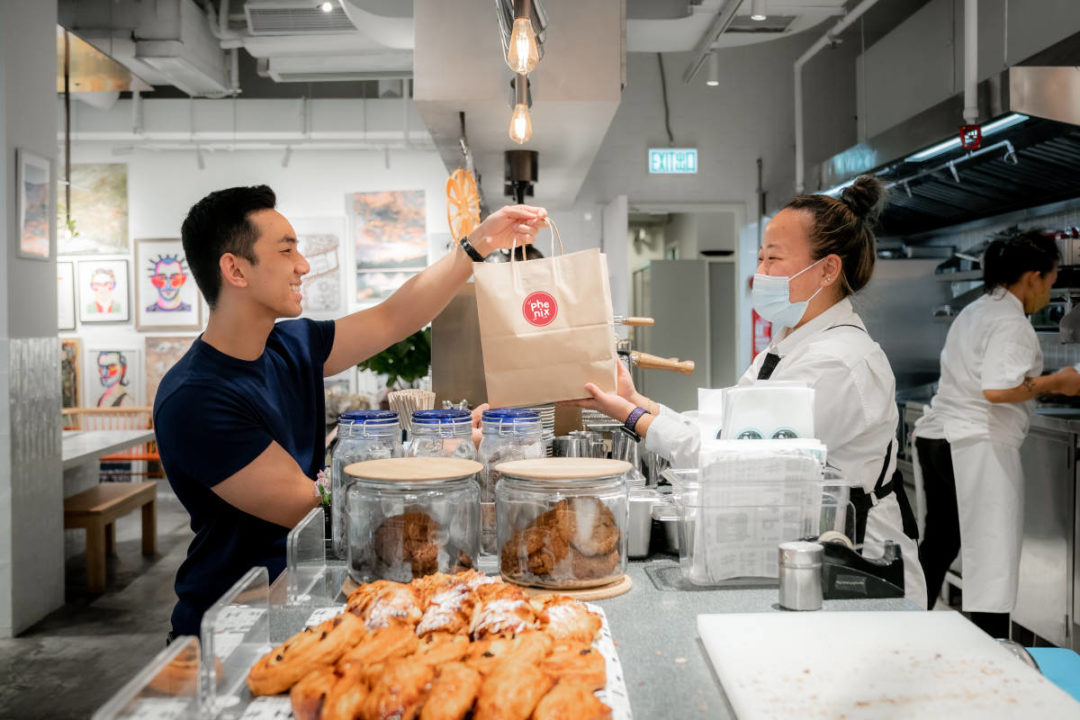In 2019, 30% of the municipal solid waste in landfills was food waste – the largest category of waste. The Environmental Protection Department calls the current overreliance on landfills for getting rid of biodegradable waste “undesirable” as it depletes precious landfill space, creates dangerous gases like leachate, and fails to put organic waste to use (e.g. compost, animal feed, conversion into energy like biogas).

Some intiatives for dealing with food waste do exist, such as the government’s four-step food waste strategy. This entails reducing waste at the source, food donation, collection and recycling, and waste conversion. For example, commercial and industrial edible waste can actually be brought to an Organic Resources Recovery Centre on Lantau Island, where it’s converted into energy and compost. There’s a garden at the centre where herbs are grown using composted food waste.
Phenix is an app helping to reduce food waste at the source by redirecting surplus food from restaurants. Rather than “old” food, these are usually items with a short shelf life, food produced in surplus (e.g. meal displays, takeaway lunches), “ugly” fruits or vegetables, and wholesalers’ overstocked items.
The French mobile app, a collaboration with gently loved clothing shopping platform OnTheList, launched in Hong Kong early this year. The HK HUB spoke to Phenix about how the local response has been, and whether they’ve seen a reluctance from people to buy food that may be considered past its prime.
Emphasizing the “purchase today, pick up today” flash sale concept of the app, they liken the experience to going to a bakery or grocery store just before closing time to take advantage of big discounts: “You might not get the freshest products, but they are still very good for consumption, and you get [them] at 50% discount.”

The mystery baskets you can order off the app revolve around food themes. For example, you can choose a ‘mix of bakery’ basket at $50, and a partner bakery will then pack 4-5 items of surplus stock they have that day.
Since launching, Phenix has saved 3 tonnes of food from going to the landfill, lowering methane emissions generated during decomposition. Businesses also benefit from getting a profit for items that would normally go into the garbage.
While Phenix recognizes its important role as one of few grassroots waste reduction initiatives in Hong Kong, they say the most impact will happen with more education about consumption habits. “The consumer side accounts for half of the total food waste quantity. If people change the way they consume, that’s the key to reducing food waste. “
As more people slowly incorporate zero waste practices into their lives, it’s exciting to see initiatives like Phenix’s coming to meet them. A similar initiative has been taken by Breadline, a company that brings leftover bread from bakeries all over the city to NGOs. Hopefully, more are to come.
Header image credits: Phenix




